Search
Search Results

Definition
Greek Dark Age
The Greek Dark Age (c. 1200 to c. 800 BCE, overlapping with the Iron Age, c. 1200-550 BCE) is the modern-day term for the period in Greek history following the Bronze Age Collapse when the Mycenaean Civilization fell and the Linear B writing...
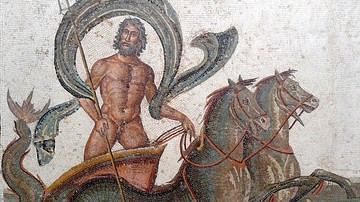
Definition
Neptune
Neptune is the Roman god of the sea and the Roman equivalent of the Greek god Poseidon. He was originally a god of fresh water and became associated with Poseidon early on in Roman history. He lives in a golden palace at the bottom of the...
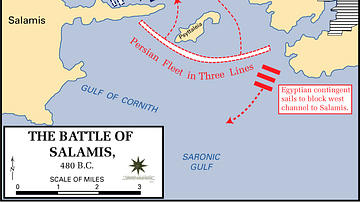
Definition
Battle of Salamis
The Battle of Salamis was a naval battle between Greek and Persian forces in the Saronic Gulf, Greece in September 480 BCE. The Greeks had recently lost the Battle of Thermopylae and drawn the naval Battle at Artemision, both in August 480...

Definition
Artemisia I of Caria
Artemisia I of Caria (l. 480 BCE) was the queen of the Anatolian region of Caria (south of ancient Lydia, in modern-day Turkey). She is most famous for her role in the naval Battle of Salamis in 480 BCE in which she fought for the Persians...
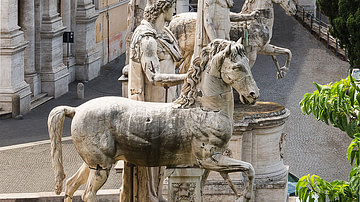
Definition
Castor and Pollux
Castor and Pollux (the Dioscuri) are figures from Greek and Roman mythology considered the twin sons of Zeus or Jupiter. Semi-divine figures, the twins were credited with the role of saving those in trouble at sea or in grave danger in war...
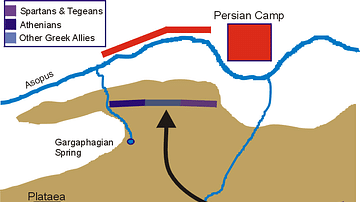
Definition
Battle of Plataea
The Battle of Plataea was a land battle between Greeks and Persians near the small town of Plataea in Boeotia in 479 BCE. Following up their naval victory at the Battle of Salamis in September 480 BCE against the same enemy, the Greeks again...
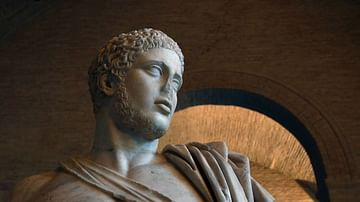
Definition
Diomedes
Diomedes is the king of Argos and a hero in Greek mythology. He was one of the leading warriors in the Trojan War, with the reputation of being gifted and strong in combat. He contributed 80 ships to the Greek forces in the Trojan War and...

Definition
Themis
Themis is the personification and goddess of divine law, will, and justice in Greek mythology. She was held in high esteem by the Olympians, often sitting by Zeus' throne and giving him wise counsel. Themis held the place of Oracle at Delphi...
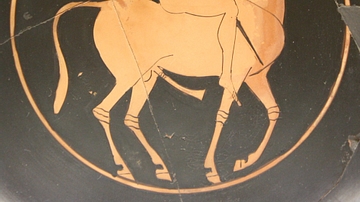
Definition
Satyr
Satyrs (aka silens) are figures from Greek mythology who were followers of the god of wine Dionysos. Satyrs were often guilty of excessive sexual desires and overindulgence of wine. Men with a horse's tail and ears or men with goat legs...
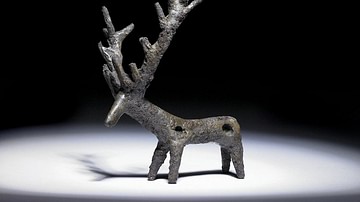
Definition
Copper in Antiquity
Copper was probably the first metal used by ancient cultures, and the oldest artefacts made with it date to the Neolithic period. The shiny red-brown metal was used for jewellery, tools, sculpture, bells, vessels, lamps, amulets, and death...